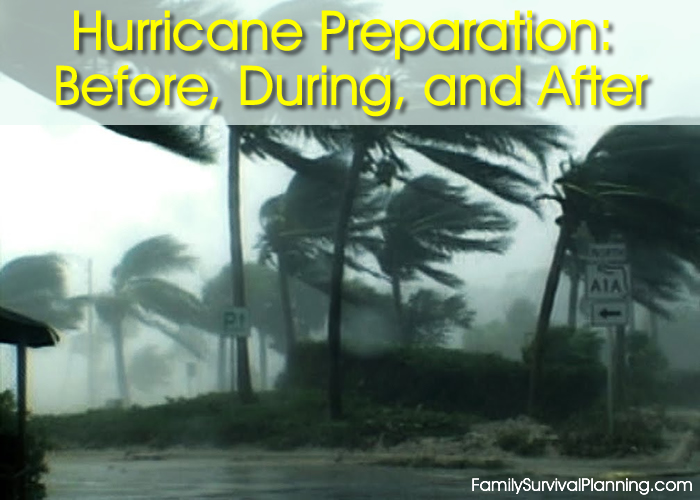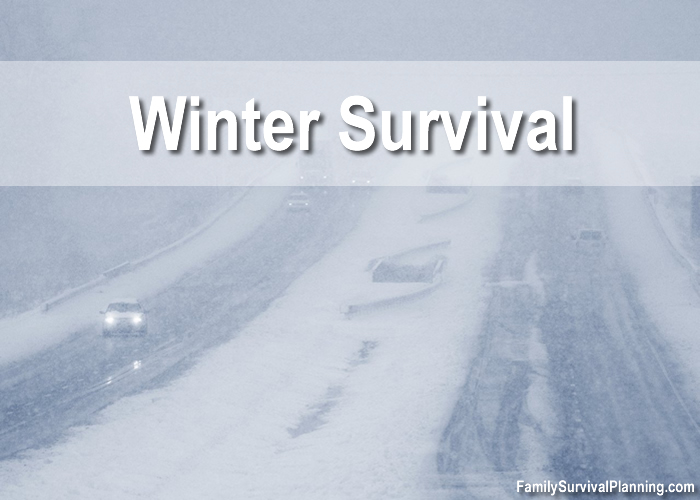- HOME
- Natural Disaster Survival
- Earthquake Survival
How to Survive An Earthquake
There is nothing more unexpected or less predictable than an earthquake.
It's not unusual for them to happen in the middle of the night. First you wake up to the feeling of your bed shaking. Then the books begin to fall from the shelves and pictures drop off the walls.
In the kitchen, cabinets fly open and dishes and pans crash to the floor.
Invest in emergency food storage now and enjoy peace of mind for the next 25 years. Don't miss out on the savings!
If you're lucky, that will be the end of it. But most likely, the real shaking begins next. It can shake hard enough to toss you out of bed.
Suddenly everything in your home becomes a lethal weapon. Light fixtures and pieces of the ceiling can drop and fall on top of you. To paraphrase the American Red Cross: "It's not the shaking that hurts. It's the stuff that falls on your head."
Earthquake Survival Begins With a Plan
Your plan, as with any other natural or man-made disaster, should begin with:
- developing a family communication plan;
- making an emergency preparedness kit; and
- assembling 72-hour kits for each family member.
You can download this free Emergency Contact List.
Collapsing walls, flying glass and falling objects cause most quake-related injuries and deaths.
The information I have assembled here includes general guidelines for earthquake survival, preparedness and safety.
What To Do Before An Earthquake
Look for items in your home that could become a hazard in an earthquake.
 Earthquake Damage
Earthquake Damage- Repair defective electrical wiring, leaky gas lines, and inflexible utility connections.
- Bolt down water heaters and gas appliances (have an automatic gas shutoff device installed that is triggered by an earthquake).
- Place large or heavy objects on lower shelves. Fasten shelves to walls. Brace high and top-heavy objects.
- Store bottled foods, glass, china, and other breakables on low shelves or in cabinets that can fasten shut.
- Anchor overhead lighting fixtures.
- Check and repair deep plaster cracks in ceilings and foundations. Get expert advice, especially if there are signs of structural defects.
- Be sure the residence is firmly anchored to its foundation.
- Install flexible pipe fittings to avoid gas or water leaks. Flexible fittings are more resistant to breakage.
- Know where and how to shut off electricity, gas, and water at main switches and valves.
Hold Earthquake Drills With Your Family
- Locate safe spots in each room under a sturdy table or against an inside wall. Reinforce this information by physically placing yourself and your family in these locations.
- Identify danger zones in each room—near windows where glass can shatter, bookcases or furniture that can fall over, or under ceiling fixtures that could fall down.
Review Your Insurance Policies
- Check with your insurance agent to see if earthquake insurance is available and affordable.
- Some damage may be covered even without specific earthquake insurance.
- Protect important home and business papers.
What To Do During An Earthquake
The American Red Cross came up with the drop, cover and hold on method. Teach children this method, and practice it with them several times a year.
If you are indoors:
- Minimize your movements during an earthquake to a few steps to a nearby safe place. Stay indoors until the shaking has stopped and you are sure exiting is safe.
- Drop. Take cover under a sturdy desk, table, or bench, or against an inside wall, and hold on. Stay away from glass, windows, outside doors or walls, and anything that could fall, such as lighting fixtures or furniture. If you are in bed, stay there. Cover. Protect your head with a pillow, unless you are under a heavy light fixture that could fall. Hold on.
- If there isn't a table or desk near you, cover your face and head with your arms and crouch in an inside corner of the building. Doorways should only be used for shelter if they are in close proximity to you and if you know that it is a strongly supported load-bearing doorway.
- Stay indoors until the shaking has stopped and you are sure exiting is safe. Most injuries during earthquakes occur when people are hit by falling objects when entering or exiting buildings.
If you are outdoors:
- Stay there.
- Move away from buildings, street lights and utility wires.
If you live in an apartment building or other multi-level structure:
- Get under a desk and stay away from windows and outside walls.
- Stay in the building (many injuries occur as people flee a building and are struck by falling debris from above).
- Be aware that the electricity may go out and sprinkler systems may come on.
- Do not use the elevators.
If you're in a crowded indoor public location:
- Stay where you are. Do not rush for the doorways.
- Move away from tall shelves, cabinets, and bookcases containing objects that may fall.
- Take cover and grab something to shield your head and face from falling debris and glass.
- Do not use the elevators.
If you're in a moving vehicle:
- Stop as quickly as safety permits and stay in the vehicle.
- Avoid stopping near or under buildings, trees, overpasses, or utility wires.
- When the quake stops, proceed cautiously (if possible), watching for road and bridge damage.
If you become trapped in debris:
- Do not light a match
- Do not move about or kick up dust.
- Cover your mouth with a handkerchief or clothing.
- Tap on a pipe or wall so rescuers can locate you. Use a whistle if one is available. Shout only as a last resort—shouting can cause you to inhale dangerous amounts of dust.
What To Do After An Earthquake
Be prepared for aftershocks.
These secondary shock waves are usually less violent than the main quake but can be strong enough to do additional damage to weakened structures.
Check for injuries.
- Do not attempt to move seriously injured persons unless they are in immediate danger of death or further injury. If you must move an unconscious person, first stabilize the neck and back, then call for help immediately.
- If the victim is not breathing, carefully position the victim for artificial respiration, clear the airway, and start mouth-to-mouth resuscitation.
- Maintain body temperature with blankets. Be sure the victim does not become overheated.
- Never try to feed liquids to an unconscious person.
If the electricity goes out:
- Use flashlights or battery-powered lanterns.
- Do not use candles, matches, or open flames indoors after the earthquake because of possible gas leaks.
Check for damage:
- Wear sturdy shoes in areas covered with fallen debris and broken glass.
- Check your home for structural damage. If you have any doubts about safety, have your home inspected by a professional before entering.
- Check chimneys for visible damage; however, have a professional inspect the chimney for internal damage before lighting a fire.
- Clean up spilled medicines, bleaches, gasoline, and other flammable liquids. Evacuate the building if gasoline fumes are detected and the building is not well ventilated.
- Open cabinets cautiously. Beware of objects that can fall off shelves.
Visually inspect utility lines and appliances for damage.
- If you smell gas or hear a hissing or blowing sound, open a window and leave. Shut off the main gas valve. Report the leak to the gas company from the nearest working phone or cell phone available. Stay out of the building. If you shut off the gas supply at the main valve, you will need a professional to turn it back on.
- Switch off electrical power at the main fuse box or circuit breaker if electrical damage is suspected or known.
- Shut off the water supply at the main valve if water pipes are damaged.
- Do not flush toilets until you know that sewage lines are intact.
Cautions:
- Use the phone only to report life-threatening emergencies.
- Listen to news reports for the latest emergency information. (A battery and/or solar powered radio would come in handy at this point.)
- Stay off the streets. If you must go out, watch for fallen objects, downed electrical wires, and weakened walls, bridges, roads, and sidewalks.
If you live in an earthquake-prone area, learning how to survive is imperative. Having watched several documentaries on TV about how the earth was made and how earthquakes happen, we should all be aware that they may happen just about anywhere on this earth. So prepare now.
















